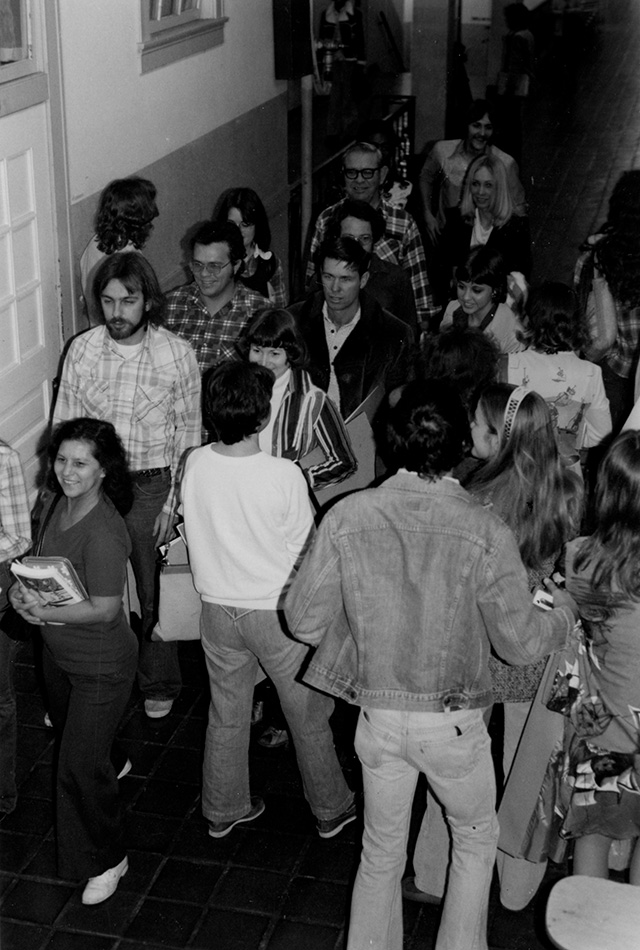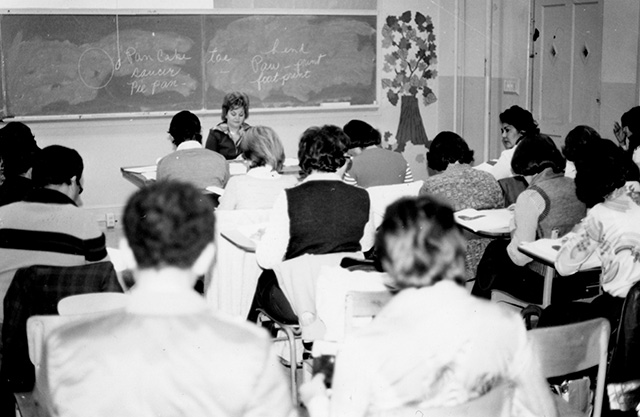Taxpayers had established ACC with the understanding that there would be no accompanying taxes. But few anticipated the explosive growth that followed. Registration in the fall of 1980 approached 19,000 students, 700 percent more than in 1973. ACC served 40 percent as many students as the University of Texas at Austin on a budget only 5 percent as large. ACC received biennial appropriations from the Texas Legislature for instruction but not for facilities. The remainder of the school’s revenue came mostly from student tuition, which at $13 per credit hour was among the highest in Texas. ACC was one of only two Texas community colleges (the other was Houston) that received no local tax revenue, and its facilities and financial resources were severely strained.
Facing a serious financial crunch, ACC officials asked voters in Travis County to (1) make ACC a county-wide college independent of AISD with its own governing board and taxing authority, (2) approve an immediate tax levy of 4 cents per $100 property valuation, and (3) allow ACC to sell $70 million in bonds to build new campuses and renovate Ridgeview and Rio Grande.
Hostility to taxes was strong however. High unemployment and double-digit price inflation made even small taxes painful. The Legislature took a dim view of Austin’s refusal to levy local taxes to support its community college. Some lawmakers even threatened to cut ACC off from all state funding if voters did not agree to a local tax. On April 4th, Travis County voters gave their answer: a resounding “No” to any new taxes.
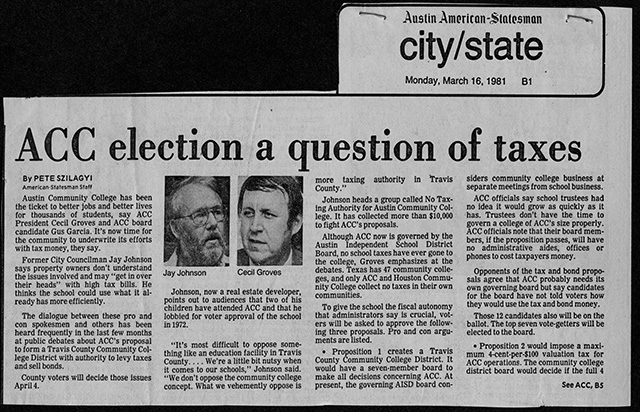
Former city councilman Jay Johnson opposed ACC’s tax proposition. “We don’t oppose the community college concept,” he said. What we vehemently oppose is more taxing authority in Travis County. ACC President Cecil Groves pointed out that the college had proven its worrth and that it was time for the citizens of Austin to step up and pay for it.
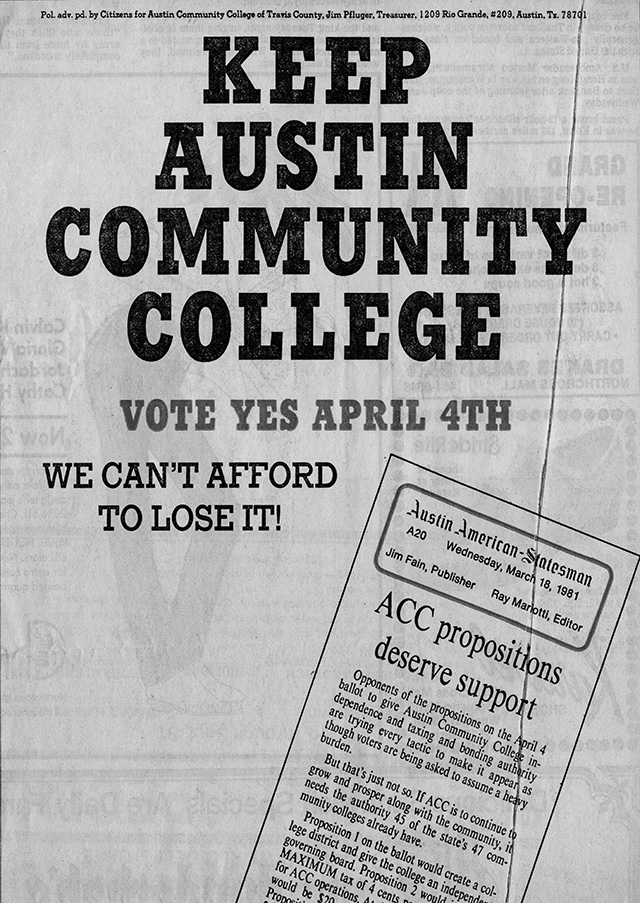
Several legislators stated publicly that state funding for ACC should cease if the citizens of Austin refused to pay for the college. The consequences of such action could be lethal.
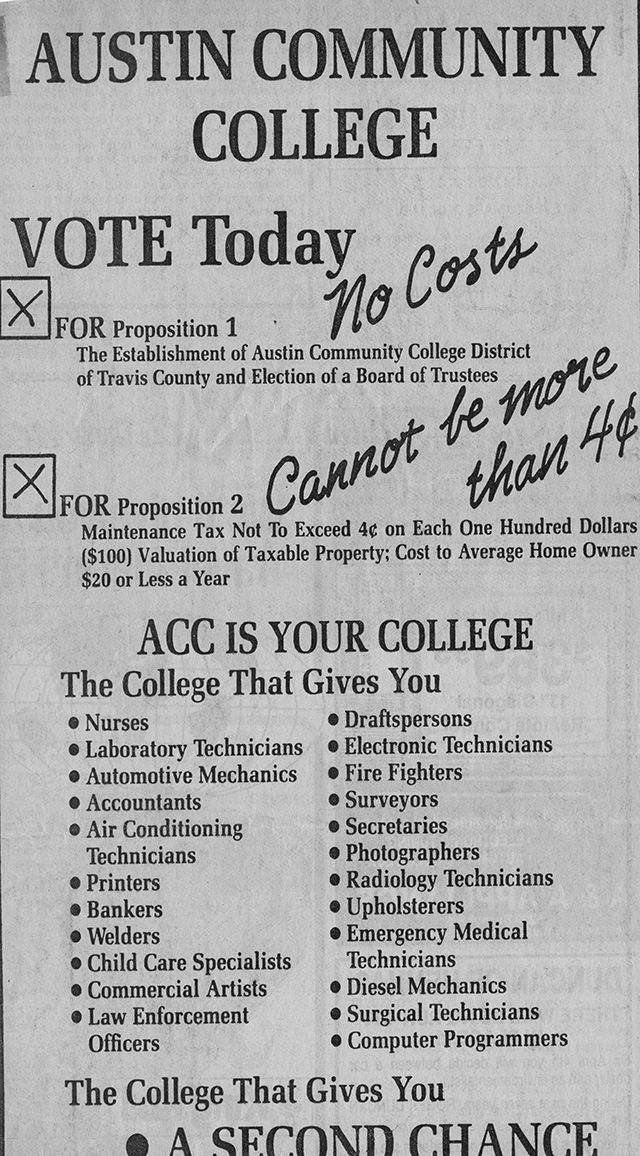
ACC supporters argued that the College was providing not only academic learning but vital skills training as well to help Austinites weather a stormy economy.
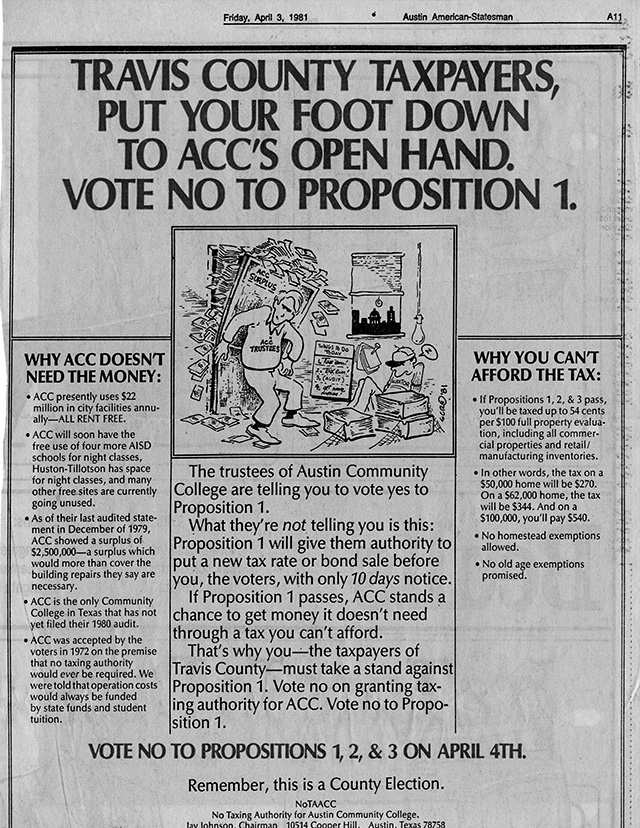
Opponents of the tax proposition shrewdly complimented ACC on how well it was doing without the tax revenue it was asking for.
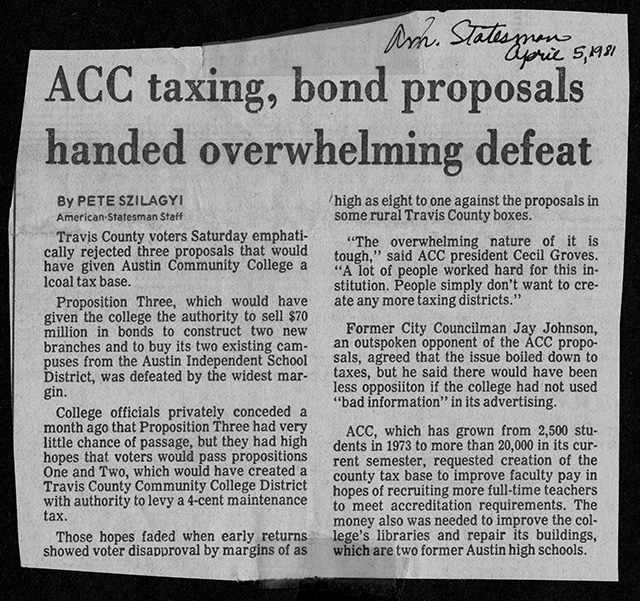
On Election Day, voters overwhelmingly rejected taxing authority for Austin Community College. Analysts pointed out that conditions were not good for winning a tax election and that college officials had asked for too much and too little information about how the money would be spent.

